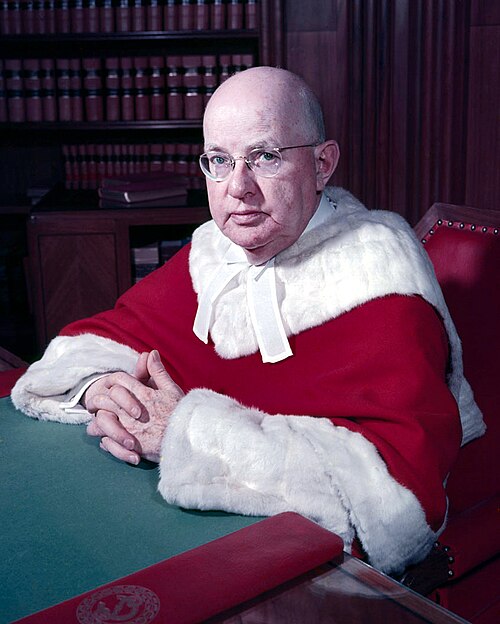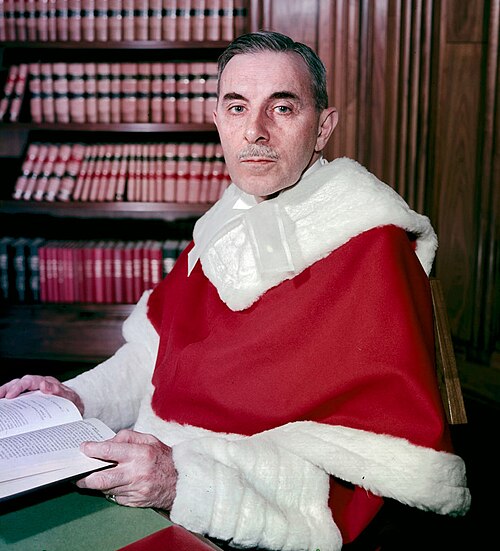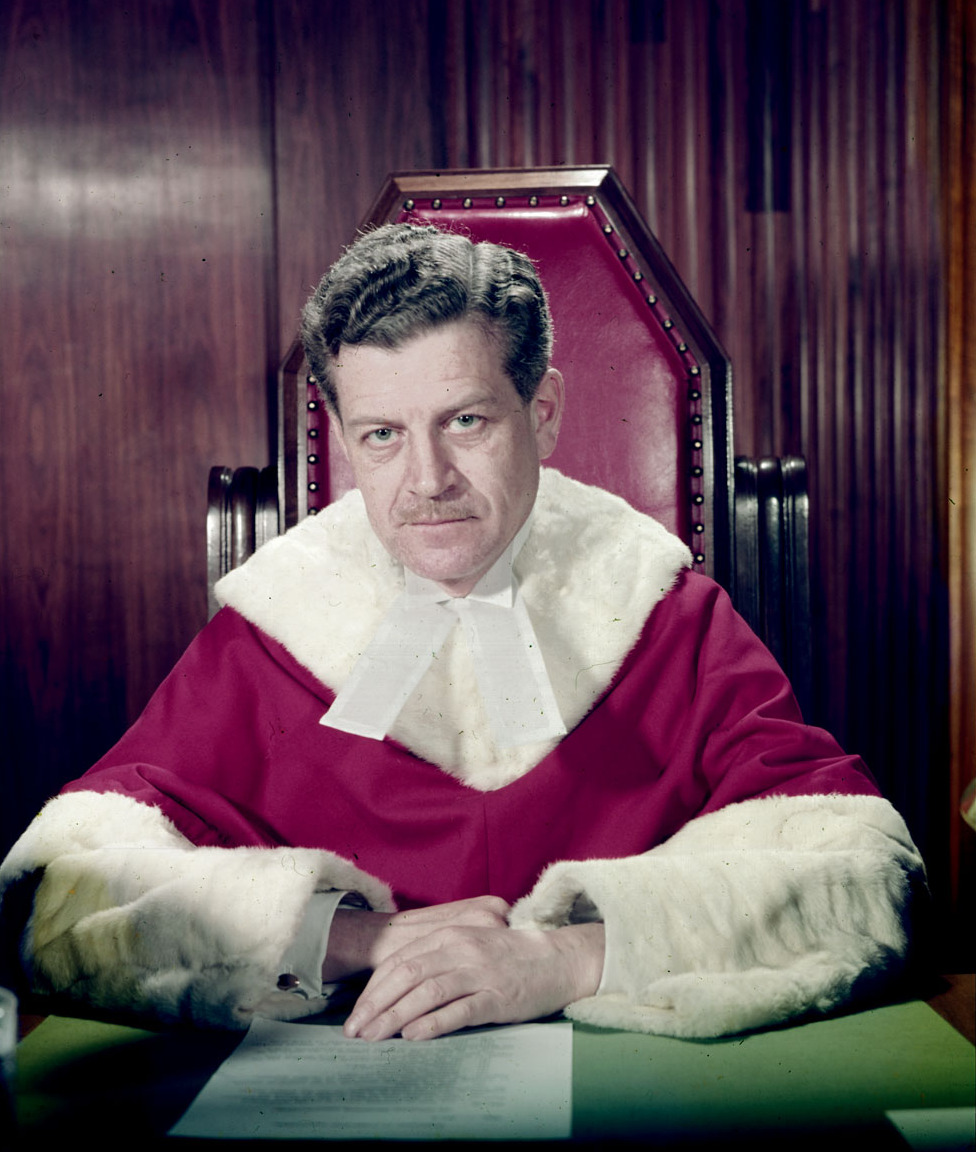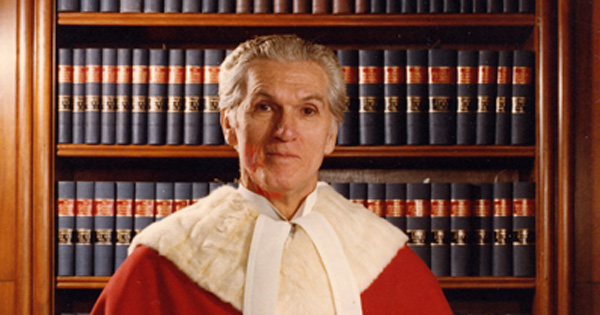Robert Taschereau, CC, chief justice of Canada 1963–67, Supreme Court of Canada justice 1940–63, lawyer, politician (born 10 September 1896 in Quebec City, QC; died 26 July 1970 in Montreal, QC). The grandson of Supreme Court justice Jean-Thomas Taschereau and the son of Quebec premier Louis-Alexandre Taschereau, Robert Taschereau served on the Supreme Court of Canada for 27 years. He was chief justice of Canada for four years. Taschereau co-headed the Kellock-Taschereau Commission that uncovered and prosecuted Soviet spies in the wake of the Igor Gouzenko affair. He also twice served as administrator of the Government of Canada (interim governor general) after the illness and death of Georges Vanier.
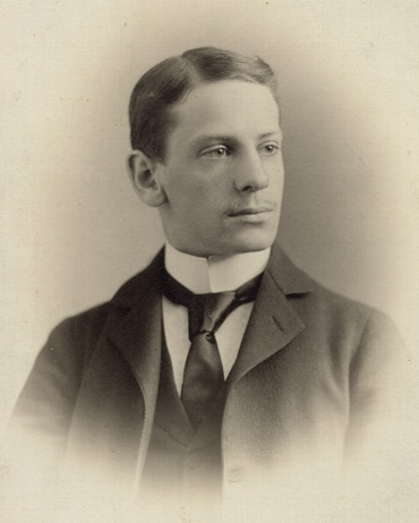
Early Life and Family
Robert Taschereau was born and raised in Quebec City. He had two sisters and two brothers. His grandfather, Jean-Thomas Taschereau, had served on the Supreme Court of Canada from 1875 to 1878. His mother was Adine (née Dionne). His father, Louis-Alexandre Taschereau, was a lawyer and politician. He was the premier of Quebec from 1920 to 1936. (See also Taschereau Legal Dynasty.)
Taschereau graduated from the Séminaire de Québec. He then enrolled in Montreal’s Université Laval, where he earned a Bachelor of Arts in 1916 and a Licentiate in Law in 1920. He then practised law in Montreal with his father’s law firm, Taschereau, Roy, Cannon, Parent & Casgrain.
Taschereau enjoyed fishing, tennis and golf. In September 1926, he married Elleen Donohue, the daughter of the founder of the pulp and paper company Donahue Inc. In 1929, Taschereau began to teach criminal law at Université Laval. He also returned to his father’s law firm.
Career in Politics
In 1930, Robert Taschereau won the nomination of the Quebec Liberal Party in the Bellechasse riding. With his victory in an October 1930 by-election, he took a seat in the National Assembly. He won more than 67.8 per cent of the votes to win re-election in the 1931 provincial election. He was re-elected again in 1935, but the Liberals were shattered due to the challenges of the Depression and internal scandals, some of which involved Premier Louis-Alexandre Taschereau. Robert Taschereau did not run in the 1936 election.
Supreme Court of Canada
Robert Taschereau’s former law partner, Lawrence Cannon, was appointed to the Supreme Court of Canada in 1930. He died in December 1939. On 9 February 1940, Prime Minister William Lyon Mackenzie King appointed Taschereau to replace Cannon as a justice on the Supreme Court. His appointment was unusual because he had no experience as a judge. At the age of 43, he was also among the youngest ever appointed to the Court.
Kellock–Taschereau Commission
Shortly after the end of the Second World War, Soviet intelligence officer Igor Gouzenko defected to the Canadian government and provided proof that the Soviet Union had spies in Canada and the United States. When the startling news leaked, Prime Minister Mackenzie King appointed Robert Taschereau and Supreme Court justice Roy Kellock to lead the Royal Commission on Espionage. It was quickly dubbed the Kellock-Taschereau Commission.
In February and March 1946, the RCMP rounded up and detained suspected spies. One at a time, they were brought before Kellock and Taschereau, who demanded they answer questions or risk jail time. Criticism of how Kellock, Taschereau and the lawyers working for them treated suspects led to a national conversation about civil liberties in Canada. The commission ended its work with 39 spies arrested and 18 convicted.
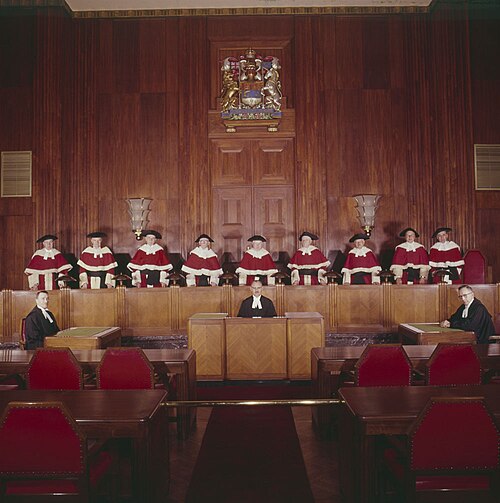
Supreme Court Justice
Robert Taschereau was a justice on the Supreme Court of Canada when it grew from seven to nine members. It was also when the final step was taken to become independent from Great Britain’s Judicial Committee of the Privy Council. In 1933, the Supreme Court of Canada became the final arbiter for all criminal cases and, in 1949, for all civil cases. The Supreme Court of Canada truly became the country’s highest court. As a result, it began seeing more cases that dealt with a wider range of issues.
Taschereau taught civil law and international law at the University of Ottawa. He urged his students to know and respect both French civil law and British common law, upon which Canadian law is based. In a 1956 speech to Osgoode Hall law students, Taschereau urged a deference for the awesome power of the law. He said, “Law tells us more of the mentality of a country than all the books of historians.”
Among the important cases in which Taschereau played a prominent role was Chaput v. Romain (1955). Esymier Chaput hosted between 30 and 40 other Jehovah's Witnesses at a meeting in his home in September 1949. Three police officers entered without a warrant and confiscated a Bible and some hymn books. When the Quebec Court of Appeal dismissed Chaput’s request for damages, the case went to the Supreme Court. It was one of three major cases in the Court that addressed the Quebec government’s treatment of Jehovah’s Witnesses. (See also Roncarelli v. Duplessis; Saumur v. City of Quebec.)
Taschereau sided with the majority and overturned the lower court. Chaput was awarded the $2,000 he had sought. Taschereau used Quebec civil law precedents to argue that the police had acted illegally. He further advanced civil rights in Canada by suggesting that Quebec laws intent on curtailing the activities of Jehovah’s Witnesses violated people’s freedom of expression and religion.
Chief Justice of Canada
On 22 April 1963, Prime Minister Lester Pearson appointed Robert Taschereau chief justice of the Supreme Court of Canada. Because he had already served on the Court for 23 years, Taschereau was considered part of the old guard.
That same month, Governor General Georges Vanier suffered a heart attack and was bedridden. In keeping with constitutional convention, Taschereau, as chief justice of Canada, was sworn in as administrator of the Government of Canada (interim governor general). In this role, he read the government’s Speech from the Throne. When Vanier died in March 1967, Taschereau became administrator again. He acted as interim governor general for 43 days until Roland Michener was sworn in as governor general.
Retirement
Robert Taschereau retired from the Supreme Court on 1 September 1967. He was made a Companion of the Order of Canada in 1967 for his contributions to the legal profession. He died in Montreal on 26 July 1970 at the age of 73.
(See also Judiciary in Canada; Court System of Canada.)

 Share on Facebook
Share on Facebook Share on X
Share on X Share by Email
Share by Email Share on Google Classroom
Share on Google Classroom


